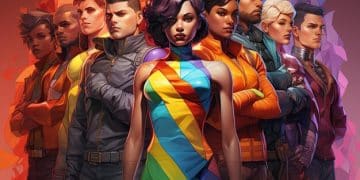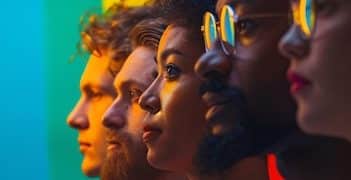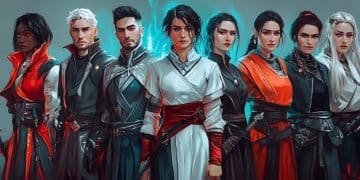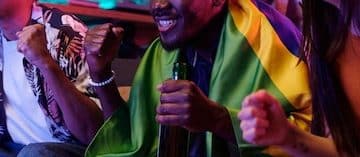How LGBT-Owned Esports Teams Are Changing US League of Legends
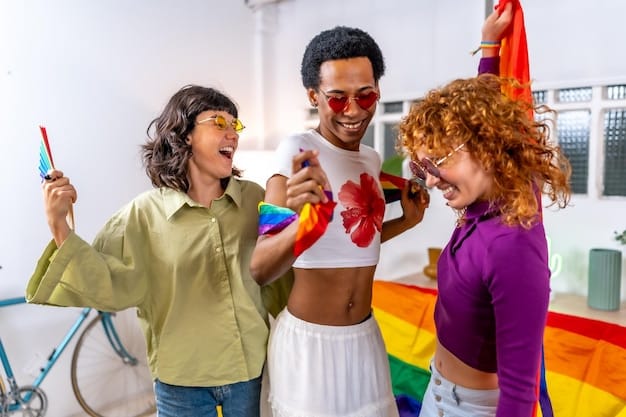
How has the 20% increase in LGBT-owned esports teams impacted the US League of Legends scene? It’s fostering inclusivity, driving innovation, and challenging conventional norms within competitive gaming, offering more diverse perspectives and opportunities.
The world of esports, particularly within the US League of Legends scene, is undergoing a significant transformation. One notable aspect of this evolution is the growing presence and impact of LGBT-owned esports teams. The question naturally arises: how has the 20% increase in LGBT-owned esports teams impacted the US League of Legends scene?
This influx isn’t just about numbers; it’s about reshaping the competitive landscape, fostering inclusivity, and challenging traditional norms. Understanding this impact requires a deeper dive into how these teams operate, the challenges they face, and the opportunities they create. In this article, we’ll explore how has the 20% increase in LGBT-owned esports teams impacted the US League of Legends scene, examining its various facets and implications for the future of esports.
The Rise of LGBT-Owned Esports Teams
The esports industry, while rapidly growing, has often been criticized for its lack of diversity and inclusivity. Recognizing this gap, a growing number of LGBT individuals and groups have stepped up to create and manage their own esports teams. This surge of LGBT-owned teams represents not only a demand for representation but also a desire to reshape the gaming culture.
Breaking Barriers
For years, the gaming community has grappled with issues of homophobia, transphobia, and general lack of representation. LGBT-owned teams are directly addressing these issues by creating safe and supportive environments for players who might otherwise feel marginalized. This includes implementing zero-tolerance policies for hateful language, promoting open discussion about inclusivity, and actively seeking out diverse talent.
Challenging Stereotypes
These teams are also challenging the perception that esports is solely dominated by a particular demographic. By showcasing diverse rosters and success stories, they demonstrate that anyone, regardless of their sexual orientation or gender identity, can excel in competitive gaming. This visibility is crucial for inspiring future generations of LGBT gamers and professionals.
- Creating inclusive gaming environments.
- Boosting representation in esports.
- Promoting diversity and acceptance.
The emergence of LGBT-owned teams signifies a cultural shift within the esports industry. By actively fighting for inclusivity and challenging stereotypes, they are paving the way for a more diverse and welcoming gaming community. This is a critical step toward making esports a truly accessible and representative space for everyone.
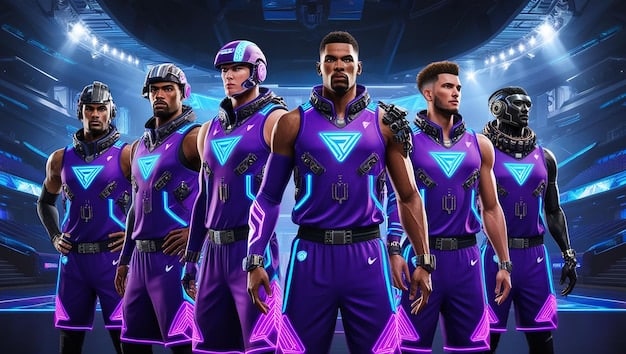
How Has the 20% Increase in LGBT-Owned Esports Teams Impacted Representation?
One of the most significant impacts of the surge in LGBT-owned esports teams is the increase in representation within the US League of Legends scene. With more LGBT individuals taking on ownership and management roles, there’s a greater emphasis on creating opportunities for LGBT players and staff.
Increased Visibility
LGBT-owned teams often prioritize featuring LGBT players in their rosters. This heightened visibility normalizes LGBT presence within esports and provides role models for aspiring players. Seeing successful LGBT players compete at a high level can be incredibly empowering and encouraging for others who may have felt excluded.
Safe and Supportive Environments
Beyond visibility, LGBT-owned teams offer safe and supportive environments where players can be their authentic selves without fear of discrimination or harassment. This is particularly important in a space where online toxicity and prejudice can often run rampant. These teams actively cultivate a culture of acceptance and respect, allowing players to focus on their performance without the added burden of navigating prejudice.
- Ensuring LGBT players are visible and celebrated.
- Promoting safe gaming spaces free from discrimination.
- Offering mentoring and support for emerging LGBT talent.
The effects of this increased representation extend beyond individual teams. It sends a message to the entire esports community that diversity is not only welcome but also valued. This shift in mindset can lead to broader changes in attitudes and policies across the industry, fostering a more inclusive and equitable environment for all.
The Competitive Edge: Innovation and Strategy
While inclusivity is a primary focus for LGBT-owned esports teams, they also bring unique perspectives and innovative strategies to the competitive arena. The diversity of thought and experience within these teams can lead to creative solutions and a fresh approach to gameplay.
Challenging Traditional Strategies
Teams owned and managed by LGBT individuals often bring a different lens to the game, challenging conventional strategies and meta-plays. Their unique backgrounds and experiences can lead to unconventional approaches, potentially giving them a competitive edge against teams with more homogenous thinking.
Inclusive Leadership
Inclusive leadership styles can foster stronger team cohesion and communication. By prioritizing empathy and understanding, LGBT-owned teams often create a more collaborative and supportive environment, allowing players to communicate more effectively and work together more seamlessly. This can translate to better coordination and decision-making during matches.
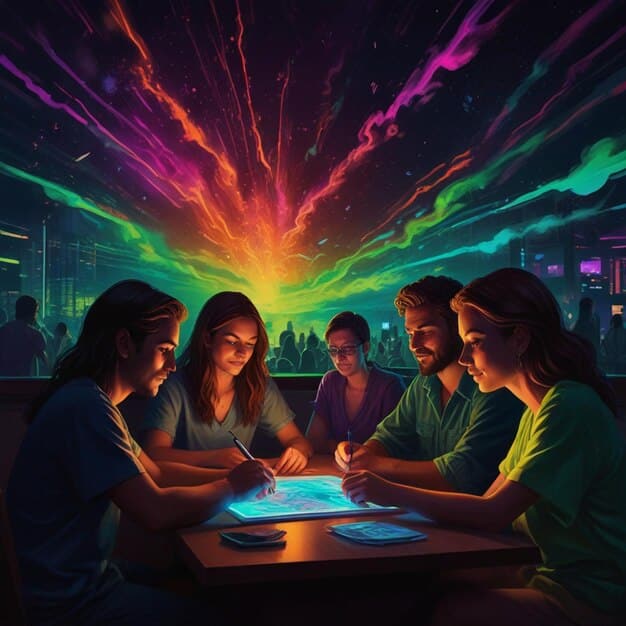
- Developing unique playstyles and strategies.
- Boosting team communication through inclusive leadership.
- Attracting diverse talent with varied skillsets.
The competitive advantages gained from diversity and inclusivity are not just anecdotal. Studies have shown that diverse teams are often more innovative and better at problem-solving. As LGBT-owned teams continue to grow and evolve, their competitive impact will likely become even more pronounced, further highlighting the value of diversity within esports.
Addressing Challenges and Bias in the US League of Legends Scene
Despite the positive impact of LGBT-owned esports teams, challenges and biases still persist within the US League of Legends scene. Overcoming these obstacles is crucial for creating a truly inclusive and equitable environment.
Combating Online Toxicity
Online toxicity and harassment remain significant concerns for LGBT players and teams. Anonymous online platforms can embolden individuals to express hateful or discriminatory views without fear of consequence. LGBT-owned teams are often at the forefront of combating this toxicity, both by implementing strict community guidelines and by advocating for stronger platform-wide measures to combat hate speech.
Breaking Down Structural Barriers
Beyond overt hostility, structural barriers can also hinder the progress of LGBT-owned teams. This includes a lack of sponsorship opportunities, limited access to resources, and unconscious biases within esports organizations. Addressing these barriers requires proactive efforts to promote diversity and inclusion at all levels of the industry.
Supporting LGBT-owned esports teams by providing resources.
Advocating for zero-tolerance policies against hate speech.
Educating the esports community on inclusivity.
By actively addressing these challenges, the esports community can create a more welcoming and equitable space for LGBT individuals and teams. This will not only benefit the LGBT community but also enrich the esports ecosystem as a whole.
The Future of LGBT Inclusion in Esports
The rise of LGBT-owned esports teams is a promising sign for the future of inclusivity within esports. However, sustained effort is needed to ensure that these gains are not just temporary but rather represent a fundamental shift in the culture and structure of the industry.
Building Alliances
Collaboration between LGBT-owned teams, allies within the esports community, and advocacy organizations is crucial for driving further progress. By working together, these groups can amplify their voices, share resources, and advocate for meaningful change.
Creating Sustainable Ecosystems
Building sustainable ecosystems that support LGBT players and teams requires long-term investment and commitment. This includes providing mentorship programs, creating scholarship opportunities, and developing professional development programs tailored to LGBT individuals. By investing in the future of LGBT talent, the esports industry can ensure a diverse and vibrant competitive landscape for years to come.
- Promoting LGBT representation at every level of esports.
- Encouraging education about LGBT issues within the gaming community.
- Creating support systems and resources for LGBT players and professionals.
The future of LGBT inclusion in esports is bright, but it requires ongoing dedication and effort. By embracing diversity, challenging biases, and building inclusive ecosystems, the US League of Legends scene can continue to evolve into a space where everyone feels welcome and empowered to participate.
| Key Point | Brief Description |
|---|---|
| 🌈 Increased Representation | LGBT-owned teams boost visibility for LGBT players. |
| 🛡️ Safe Environments | Teams prioritize inclusive, discrimination-free zones. |
| 💡 Innovative Strategies | Diverse thinking leads to competitive edges. |
| 🤝 Collaboration | Alliances strengthen LGBT inclusion in esports. |
FAQ
The growth of LGBT-owned teams has directly increased the visibility and representation of LGBT players, creating role models and fostering a sense of belonging within the community.
These teams often encounter online toxicity, structural barriers such as limited sponsorships, and unconscious biases within the broader esports ecosystem, hindering their progress.
LGBT-owned teams prioritize creating safe spaces with zero-tolerance policies against hate speech, and also promoting open conversations and educational initiatives on diversity.
Community support is vital. This includes everything from financial support through sponsorships, to allyship from other teams and organizations, and also simply uplifting the voices of LGBT players.
Support can take many forms, such as advocating for inclusive policies, challenging hateful language, supporting LGBT-owned teams, and amplifying the voices and stories of LGBT players and professionals during events.
Conclusion
In conclusion, how has the 20% increase in LGBT-owned esports teams impacted the US League of Legends scene? They are reshaping the industry by increasing representation, fostering inclusivity, and bringing unique perspectives to the competitive arena. Though challenges remain, the momentum is undeniable, paving a path towards a more diverse and equitable future for esports.

